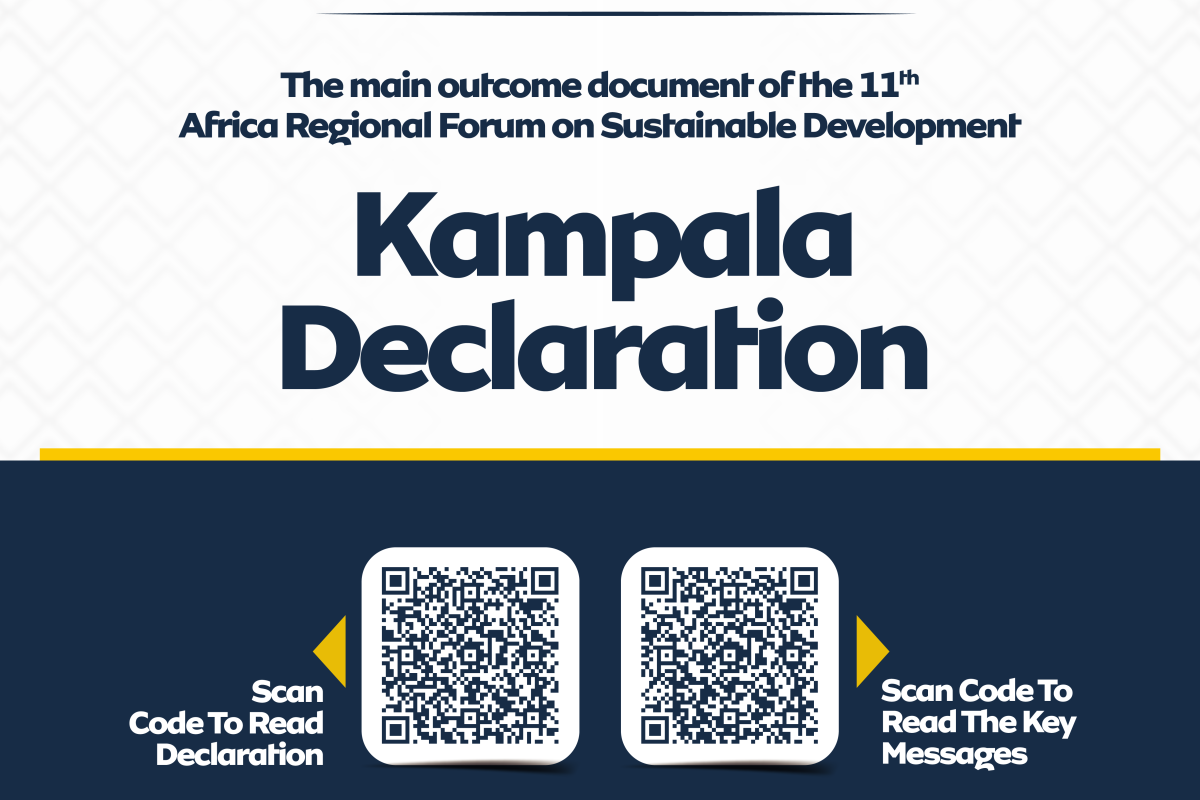
The Kampala Declaration: strategic priorities for SDGs and Agenda 2063
The eleventh Africa Regional Forum on Sustainable Development (#ARFSD11), held in Kampala from 6th – 11th April 2025 under the theme “Driving job creation and economic growth through sustainable, inclusive, science-and evidence-based solutions for the 2030 Agenda and AU Agenda 2063”, concluded with the adoption of the Kampala Declaration i.e. Kampala Declaration English Version or French Version. This Forum was jointly organized by the United Nations Economic Commission for Africa (ECA) and the Government of Uganda (Host Government) through the National SDG Secretariat Office of the Prime Minister and other Ministries, Departments and Agencies in Uganda in collaboration with the African Union Commission, the African Development Bank, United Nations system organizations, Civil Society Organizations and the Private Sector.
The declaration charts a new path for Africa’s development, emphasizing that the clearest way to realize Africa’s sustainable development ambitions is to link its pursuit of the global SDGs with the region’s own priorities as reflected in Agenda 2063. In concrete terms, the declaration calls on African nations to focus on self-sufficiency, local value addition and intra-African trade, fast-tracking the African Continental Free Trade Area (AfCFTA) to strengthen regional supply chains. Uganda, as host and an exemplar of SDG progress with growth projected at 6% – 7% annually, underscored these priorities. Economic Commission for Africa Executive Secretary Claver Gatete praised Uganda’s leadership and noted that the Kampala Declaration is “African-owned… it’s your document” stressing that continent-wide ownership and innovation must underpin the SDG Agenda and the Agenda 2063 push.
The Kampala Declaration sets out bold directives to accelerate the SDGs and Agenda 2063. It warns that Africa is off track on many goals and urges immediate multi-level action. To this end, African ministers called on governments and partners to mobilize sustained political and technical leadership at all levels and to develop continentally-led sustainable financing systems that boost job creation and economic growth. The declaration explicitly addresses the region’s financing challenge; Africa’s debt now exceeds $1 trillion with interest payments over $100 billion per year; thus advocating for innovative financing, debt sustainability strategies and stronger domestic resource mobilization. It also directs the United Nations system to help countries integrate the AU’s Second Ten-Year Implementation Plan (STYIP) into their development frameworks, ensuring the one vision-one plan for the SDGs and Agenda 2063.
The Kampala Declaration maps out the concrete measures needed: for example, it urges the preparation of national roadmaps for integrated Voluntary National Reviews (VNRs) of the 2030 Agenda and Agenda 2063, drawing on lessons from subnational reviews to translate insights into bold policies. Uganda conducted and presented her third Voluntary National Review in 2024. The Kampala Declaration commits member States to undertake an urgent further review of national and local institutions, plans, programmes and financial systems to strengthen them for faster implementation of both Agendas.
Data and evidence are highlighted as central: the declaration calls for modernizing statistical systems with data science, non-traditional data sources and disaggregated data to drive evidence-based policymaking. In sum, the Kampala Declaration provides a strategic roadmap, from expanding Africa’s fiscal space and value addition to integrating planning and monitoring, to rescue the SDGs and Agenda 2063. It paves the way for Africa’s unified contributions to global processes such as the High Level Political Forum, Climate Conference of Parties (COP), Financing for Development, the World Social Summit among others and sets an agenda of self-reliant, homegrown solutions for the continent’s sustainable development goals.


